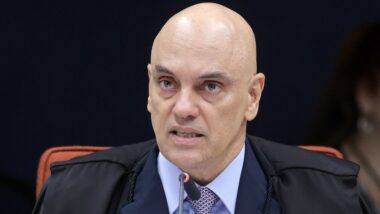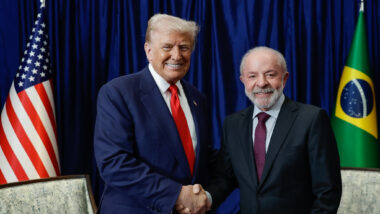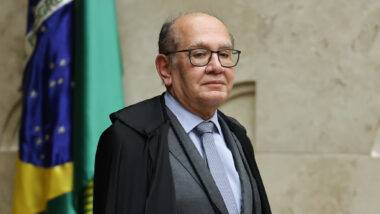
Ouça este conteúdo
“What is a man worth/ less, more than his weight? / today more than yesterday? / is he worth less when old? / less when dead?” asked Carlos Drummond de Andrade in one of his poems. The best answer that we can give him is that man is always worth a lot. Each human being, regardless of any attribute or characteristic (gender, age, race, religion, etc.) or any behavior, has a unique value, a meaning that transcends his individual existence and that it is relevant to all other men. This is what we wish to express when we talk about “human dignity”.
Dignity is the special preeminence that everyone enjoys, it’s your high value, your nobleness. When we talk about dignity of man, we refer to something that is intrinsic; it comes from the very fact of being human, from within. It is not granted – or taken away – by anyone: not by the ones around us, not by the State, not by culture, not by social consensus. And it is not collective, but individual: we don’t speak of: “humanity’s” dignity in general, but of each individual. Each human being, unique and unrepeatable, is worthy of respect. This is exactly what the Universal Declaration on Human Rights says, in article 1.º: “all human beings are born free and equal in dignity and rights” and, in its preamble: “recognition of the inherent dignity and of equal and inalienable rights of all members of the human family is the foundation of freedom, justice and peace in the world.”
“We don’t speak of: “humanity’s” dignity in general, but of each individual. Each human being, unique and unrepeatable, is worthy of respect”
Further on, in the poem, Drummond poses another question: “What miracle is man?” In other words, what makes us so special? Throughout history, several philosophers gave different answers to this question, but, deep down, they reached a similar conclusion. To Aristotle, the reason for this special dignity is the ability to understand man’s intelligence. The Greek philosopher understands that the human being is capable of being in tune with the totality of the universe To all Judaeo-Christian tradition, the root of this special value is the fact that it is God's image and likeness – it is symptomatic that Christianity had such a huge impact on Pagan societies, in affirming the universality of human dignity among people that, for example, saw women as objects. At the time of the Great Navigations, the debate about the new found lands inhabitant’s dignity was resolved affirmatively thanks to the work of thinkers like the Spaniard Francisco de Vitória.
The great modern theorist in human dignity is Immanuel Kant. In the eighteenth century he treated the human being and his dignity as “the thing that is raised above all value and therefor admits no equivalence”. The Prussian philosopher defended that the special reason for this dignity is the human being’s freedom of will, human self-determination and the ability to decide the course of our own existence. Individual freedom is the natural expression of this ability.
It is difficult to point to the exact source of this singularity that is noticed in men. There is within him an inwardness, a power, through intelligence, will and ability to produce feelings, to reach several realities and make them part of oneself, what makes it very special. In addition, he is capable of being what he is destined to be, of developing his potential, of correcting his course until the last minute. And, as if that were not enough, man is always searching for something more, something that transcends him, making man different than all other animals. This is not only a quantitative differentiation, but also qualitative. Despite recognizing an attribute such as intelligence in animals, these characteristics mentioned above are only found in humankind. The notion of “person” is directly linked to these characteristics: man is never something, man is always someone – even when the exercise of its autonomy cannot be fully practiced, for example, people in situations where they can’t make choices, such as coma patients or someone so deep into drugs that he has no control over himself. They aren’t any less worthy, less “people” than anyone else.
“Man is always searching for something more, something that transcends him, making man different than all other animals”
Even after Kant, humanity still took a while to totally understand that every human being has an intrinsic dignity – abolitionist movements and civil rights had to teach this to the man of the 19th and 20th centuries. And one of the last frontiers was broken when the enemy’s dignity was finally recognized, by means of international treaties such as The Geneva Convention that intended to ban inhumane treatment to civilians and combatants in times of war.
Therefore, with the simple observation of reality and human behavior comes the question: are there people with more and less dignity? Is dignity always the same for everyone? This question we can answer stating that the word dignity has more than one meaning. The dignity we have been dealing with here is called “ontological dignity”; it has this name because it derives from the very existence of human beings, and therefore all have it in the same degree. It is the considerations about this dignity that will continue to guide us in the reflections we will offer later. But there is also what we could call “moral dignity”- this is the moral patrimony that everyone has built using his freedom. It is what someone has in mind when he states that one person may be more worthy than another. Moral dignity, yes, can be lost (and also recovered), but only and exclusively by the free decision of its holder, by his own attitudes. That is to say: it can be forfeited, but never taken away. The worst thugs forfeited their moral dignity because they wanted to, through their choices. However their ontological dignity is preserved – for that matter, the biggest crooks are as dignified as the greatest heroes. And ontological dignity is the root of the incredible power of redirecting one’s own life, of restoring meaning to life, through remorse, till the very last minute of their existence.
Man is a being prone to forgetting. Maybe he doesn’t forget the day to day trivial things so easily, but forgets the big truths related to himself. And one of these truths is his unmovable dignity.



